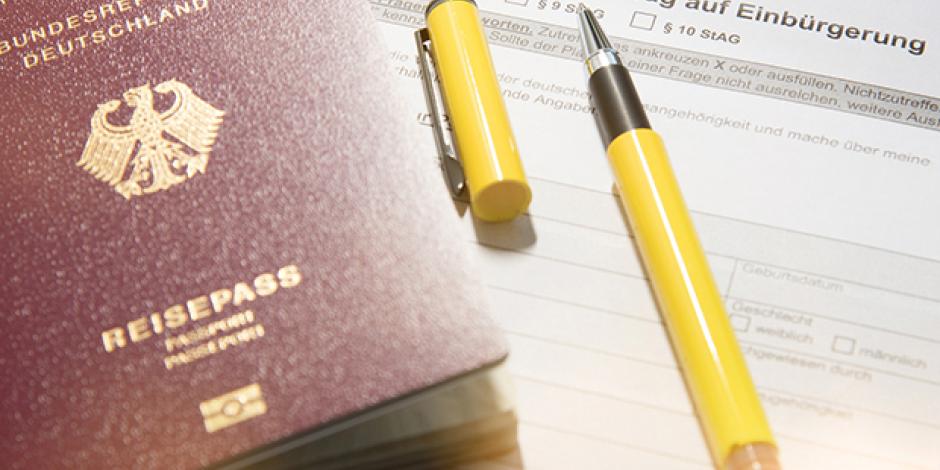Starten Sie den Audio-Text
Mit dem Audio-Player können Sie sich den Text anhören. Darunter finden Sie das Transkript.
Transcript: Brexiles in Germany
When, on 24 June 2016, the votes had been counted and it was clear that Britain would leave the EU, many expat Brits decided to apply for dual German-British nationality and become “Brexiles”.
Inez: Hello, I’m Inez Sharp, editor-in-chief of Spotlight magazine, and today we’re going to talk to Ian McMaster, editor-in-chiefChefredakteur(in)editor-in-chief of Business Spotlight about becoming a BrexileWortschöpfung aus „Brexit“ und „Exile“ (im Exil Lebende(r))Brexile.
Ian: A Brexile? Well, I wouldn’t actually use that term, although I think it’s quite amusing. I would describe myself as an English person, a British person and as a European who’s been living in Germany for the past 27 years.
Inez: So you applied for German citizenship, dual citizenshipdoppelte Staatsbürgerschaftdual citizenship, but this was not as a result of Brexit, is that right?
Ian: That’s right. I put in my application for dual citizenship about nine months before the referendum, nine months before the vote for Brexit. The referendum was only one of the reasons why I decided to apply for dual nationality.
Inez: But you were to be awaresich bewusst seinaware that this was coming up. You were aware that if Brexit actually went through, it might change your situation as a British person with British nationality living in Germany.
Ian: My main motivation for applying for dual nationality was first that I became aware that this was possible, which it wasn’t for a long time. Second, I felt that after living and working in Germany for over 20 years and paying taxes but not being able to vote in the German elections, I wanted to correct that. I wanted to be able to vote. And the third thing was the possibility that if Britain voted for Brexit, which I didn’t think was very likelywahrscheinlichlikely at the time, but I didn’t like the idea that I would not be a citizen of the European Union. That was the third reason for applying for dual citizenship.
Inez: Can you remember your thoughts the day after the Brexit vote?
Ian: It was a shock. I’d gone to bed the night before thinking that Britain had voted to stay in the EU. I spent most of the next day thinking about this result and to be honest, still couldn’t really believe it and realized that now my application for dual citizenship was even more important than it had been at the time I applied.
Inez: How far down the line are you? Do you already have dual citizenship or are you still in the process?
Ian: Well, it’s a long process. I first made contact with the authoritiesdie Behördenthe authorities in Germany in October 2015 — so nine months before the referendum. I finished all my Formalitäten, Papierkrampaperworkpaperwork in May 2016 — a month before the referendum. They told me then it could take a year before this application is processed. I’m still waiting to hear back from them as to whether I’ve been successful in getting the dual citizenship.
Neugierig auf mehr?
Dann nutzen Sie die Möglichkeit und stellen Sie sich Ihr optimales Abo ganz nach Ihren Wünschen zusammen.



